Emanuel Lasker
1868 - 1941
|
|
Stats: +373 -92 =176
|
|
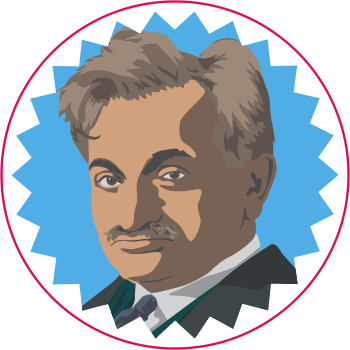 |
# Games Played |
621 |
 |
| % Games Won |
57% |
 |
| Excels in Chaos |
40 |
 |
| Avoids Time Trouble |
14 |
 |
| Combativeness |
22 |
 |
| Skill Rating |
2847 |
 |
|
In his prime Lasker was one of the most dominant champions, and he is still generally regarded as one of the strongest players ever. His record of being World Chess Champion for 27 years remains unbroken to this day. His contemporaries used to say that Lasker used a "psychological" approach to the game, and even that he sometimes deliberately played
inferior moves to confuse opponents. Recent analysis, however, indicates that he was ahead of his time.
View Games Profile
|
|
José Raúl Capablanca
1888 - 1942
|
|
Stats: +368 -47 =262
|
|
 |
# Games Played |
677 |
 |
| % Games Won |
54% |
 |
| Excels in Chaos |
37 |
 |
| Avoids Time Trouble |
21 |
 |
| Combativeness |
15 |
 |
| Skill Rating |
2813 |
 |
|
One of the greatest players of all time, Capablanca was renowned for his exceptional endgame skill, accuracy and speed of play. Due to his achievements in the chess world, mastery over the board and his relatively simple style of play he was nicknamed the “Human Chess Machine”.
According to Capablanca, he learned the rules of the game at the age of four by watching his father play, pointed out an illegal move by his father, and then beat his father twice.
View Games Profile
|
|
Alexander Alekhine
1892 - 1946
|
|
Stats: +1066 -247 =488
|
|
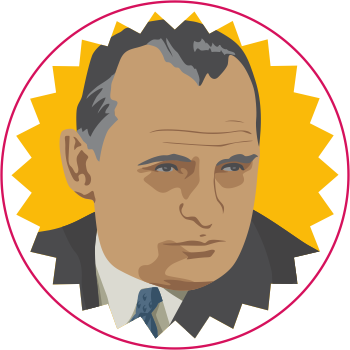 |
# Games Played |
1801 |
 |
| % Games Won |
59% |
 |
| Excels in Chaos |
44 |
 |
| Avoids Time Trouble |
18 |
 |
| Combativeness |
23 |
 |
| Skill Rating |
2804 |
 |
|
Alekhines life and chess career were highly eventful and controversial, spiced with two World Wars, marked for execution as a spy at either end of WWI, the destruction of his wealth by the 1929 stock market crash, the assassination of his brother Alexei in 1939, the death of his sister in 1944, four marriages, five world championship matches, and alcoholism. Yet despite these events - Alekhine played some of the finest games of Chess the world has ever seen.
View Games Profile
|
|
Harry Pillsbury
1872 - 1906
|
|
Stats: +227 -96 =106
|
|
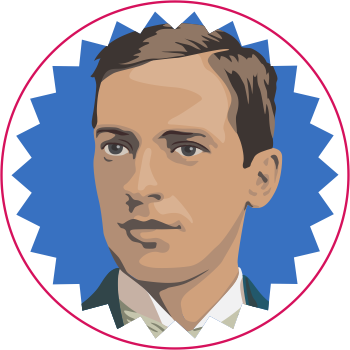 |
# Games Played |
429 |
 |
| % Games Won |
53% |
 |
| Excels in Chaos |
38 |
 |
| Avoids Time Trouble |
9 |
 |
| Combativeness |
25 |
 |
| Skill Rating |
2773 |
 |
|
By 1892, having only played Chess for four years Pillsbury won a match two games to one against World Champion Wilhelm Steinitz, who gave him odds of a pawn. Pillsbury's rise was meteoric, and there was soon no one to challenge him in the New York chess scene.
Pillsbury travelled to Europe to play in the Hastings 1895 chess tournament, in which all the greatest players of the time participated. The 22-year-old Pillsbury became a celebrity in the United States and abroad by winning the tournament, finishing ahead of reigning world champion Emanuel Lasker and former world champion Wilhelm Steinitz!
View Games Profile
|
|
Géza Maróczy
1870 - 1951
|
|
Stats: +347 -135 =323
|
|
 |
# Games Played |
805 |
 |
| % Games Won |
43% |
 |
| Excels in Chaos |
27 |
 |
| Avoids Time Trouble |
8 |
 |
| Combativeness |
14 |
 |
| Skill Rating |
2772 |
 |
|
Between 1902 and 1908, Maróczy took part in thirteen tournaments and won five first prizes and five second prizes. In 1906 he agreed to terms for a World Championship match with Emanuel Lasker, but political problems in Cuba, where the match was to be played, caused the arrangements to be canceled.
His successful defences of the Danish Gambit involving judicious return of the sacrificed material for advantage, were used as models of defensive play by Euwe and Kramer in their two-volume series on the middlegame.
View Games Profile
|
|
Siegbert Tarrasch
1862 - 1934
|
|
Stats: +439 -199 =254
|
|
 |
# Games Played |
892 |
 |
| % Games Won |
49% |
 |
| Excels in Chaos |
28 |
 |
| Avoids Time Trouble |
7 |
 |
| Combativeness |
22 |
 |
| Skill Rating |
2766 |
 |
|
Tarrasch was one of the strongest chess players and most influential chess teachers of the late 19th century and early 20th century. He scored heavily against the aging Steinitz in tournaments. After Emmanuel Lasker became world chess champion in 1894, Tarrasch could not match him. There was no love lost between the two masters. The story goes that when they were introduced at the opening of their 1908 championship match,Tarrasch clicked his heels, bowed stiffly, and said, "To you, Dr. Lasker, I have only three words, check and mate"
View Games Profile
|
|
Wilhelm Steinitz
1836 - 1900
|
|
Stats: +416 -178 =130
|
|
 |
# Games Played |
724 |
 |
| % Games Won |
57% |
 |
| Excels in Chaos |
39 |
 |
| Avoids Time Trouble |
13 |
 |
| Combativeness |
29 |
 |
| Skill Rating |
2763 |
 |
|
Steinitz was the first undisputed chess champion of the World. Steinitz lost his title to Emanuel Lasker in 1894 and also lost a rematch in 1897. Steinitz was unbeaten in over 25 years of match play. He was perhaps the first of the modern champions. Although Steinitz became "world number one" by winning in the all-out attacking style that was common in the 1860s, he unveiled in 1873 a new positional style of play and demonstrated that it was superior to the previous style.
View Games Profile
|
|
Paul Morphy
1837 - 1884
|
|
Stats: +204 -26 =26
|
|
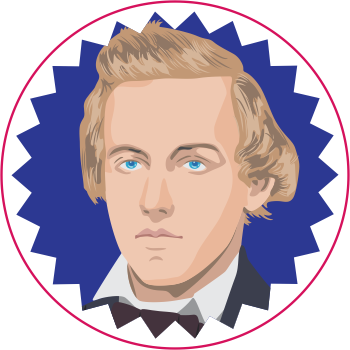 |
# Games Played |
256 |
 |
| % Games Won |
80% |
 |
| Excels in Chaos |
43 |
 |
| Avoids Time Trouble |
19 |
 |
| Combativeness |
35 |
 |
| Skill Rating |
2753 |
 |
|
Paul Morphy is considered to have been the greatest chess master of his era and an unofficial World Chess Champion. He was a chess prodigy. He was called "The Pride and Sorrow of Chess" because he had a brief and brilliant chess career, but then retired from the game while still young. In 1858, Morphy travelled to Europe playing every strong player, usually winning easily.
View Games Profile
|
|
Carl Schlechter
1874 - 1918
|
|
Stats: +300 -115 =375
|
|
 |
# Games Played |
790 |
 |
| % Games Won |
38% |
 |
| Excels in Chaos |
29 |
 |
| Avoids Time Trouble |
12 |
 |
| Combativeness |
9 |
 |
| Skill Rating |
2743 |
 |
|
Schlechter began playing chess at the age of 13. He first rose to prominence in the chess world when he played a match with Georg Marco at the age of nineteen, drawing all ten
games. This established his future reputation as "the drawing master," a player who was relatively easy to draw against, but almost impossible to defeat.
Schlechter distinguished himself by being the first person in 16 years to seriously threaten to claim Lasker's world title. He came within a whisker of winning by going into the final
game leading by one point, he disdained a possible draw and ultimately lost.
View Games Profile
|
|
Mikhail Chigorin
1850 - 1908
|
|
Stats: +412 -251 =146
|
|
 |
# Games Played |
809 |
 |
| % Games Won |
51% |
 |
| Excels in Chaos |
38 |
 |
| Avoids Time Trouble |
9 |
 |
| Combativeness |
29 |
 |
| Skill Rating |
2737 |
 |
|
Chigorin was the last great player of the Romantic chess style. His playing style featured a well honed tactical ability and an imaginative approach to the opening. He rejected many of the inflexible doctrines put forward by Tarrasch and Steinitz, but accepted Steinitz' teachings about the soundness of the defensive centre. Through his original talent, lively games and prolific teachings, many Russians regard Mikhail Chigorin as the founder of their "School of chess", later to become known as the Soviet School of Chess.
View Games Profile
|
|
Johannes Zukertort
1842 - 1888
|
|
Stats: +258 -112 =72
|
|
 |
# Games Played |
442 |
 |
| % Games Won |
58% |
 |
| Excels in Chaos |
32 |
 |
| Avoids Time Trouble |
6 |
 |
| Combativeness |
31 |
 |
| Skill Rating |
2736 |
 |
|
Zukertort was one of the leading world players for most of the 1870s and 1880s, and lost to Wilhelm Steinitz in the World Chess Championship 1886, which is generally seen as the first World Chess Championship match. Zukertort filled his relatively short life with a wide range of other achievements as a soldier, musician, linguist, journalist and political activist.
View Games Profile
|
|
David Janowski
1868 - 1927
|
|
Stats: +364 -279 =175
|
|
 |
# Games Played |
818 |
 |
| % Games Won |
44% |
 |
| Excels in Chaos |
41 |
 |
| Avoids Time Trouble |
18 |
 |
| Combativeness |
27 |
 |
| Skill Rating |
2736 |
 |
|
Janowski’s chess career began in Paris, and in the late 1890's he started receiving a steady stream of invitations to international events. For the next twenty years he was a consistent participant in major tournaments. In 1909 and 1911 he played two matches with World Champion Emanuel Lasker but lost them both. Janowski played very quickly and was known as a sharp tactician who was devastating with the bishop pair. Capablanca noted that Janowski's greatest weakness was in the endgame.
View Games Profile
|
|
Akiba Rubinstein
1882 - 1961
|
|
Stats: +430 -152 =285
|
|
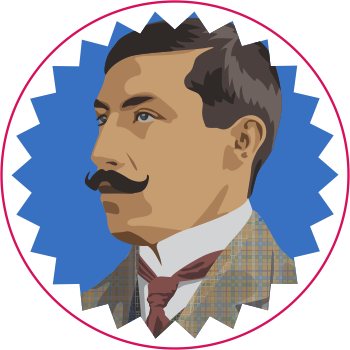 |
# Games Played |
867 |
 |
| % Games Won |
50% |
 |
| Excels in Chaos |
36 |
 |
| Avoids Time Trouble |
9 |
 |
| Combativeness |
19 |
 |
| Skill Rating |
2733 |
 |
|
Rubinstein was Jewish, and his family planned for him to become a rabbi. However, in 1903, after finishing fifth in a tournament in Kiev, Rubinstein decided to abandon his rabbinical studies and devote himself entirely to chess. In his youth, Rubinstein astonished the chess world, defeating many famous players, including Capablanca and Schlechter - however, his later life was plagued by mental illness. He was scheduled to play a match with Emanuel Lasker for the world championship in 1914, but it was cancelled because of the outbreak of World War I.
View Games Profile
|
|
Aaron Nimzowitsch
1886 - 1935
|
|
Stats: +262 -109 =198
|
|
 |
# Games Played |
569 |
 |
| % Games Won |
46% |
 |
| Excels in Chaos |
42 |
 |
| Avoids Time Trouble |
13 |
 |
| Combativeness |
18 |
 |
| Skill Rating |
2733 |
 |
|
Aron Nimzowitsch came to prominence in the chess world just before the First World War. He was Russian Champion in 1913 (jointly with Alekhine) at St.Petersburg. He won a string of international events in the mid-1920s which led him to challenge Jose Raul Capablanca to a World Championship match in 1925. Negotiations dissolved after monetary backing could not be found.
He took first place at tournaments in Copenhagen 1923, Dresden 1926, Karlsbad 1929 and Frankfurt 1930.
View Games Profile
|
|
Max Euwe
1901 - 1981
|
|
Stats: +716 -230 =484
|
|
 |
# Games Played |
1430 |
 |
| % Games Won |
50% |
 |
| Excels in Chaos |
42 |
 |
| Avoids Time Trouble |
16 |
 |
| Combativeness |
18 |
 |
| Skill Rating |
2731 |
 |
|
Euwe won every Dutch chess championship that he participated in from 1921 until 1952, and additionally won the title in 1955 – his 12 titles are still a record. On December 15, 1935 after 30 games played in 13 different cities around The Netherlands over a period of 80 days, Euwe defeated Alekhine by 15½–14½, becoming the fifth World Chess Champion. Euwe lost the title to Alekhine in a rematch in 1937, also played in The Netherlands 15½–9½.
View Games Profile
|
|
Efim Bogoljubov
1889 - 1952
|
|
Stats: +466 -244 =283
|
|
 |
# Games Played |
993 |
 |
| % Games Won |
47% |
 |
| Excels in Chaos |
40 |
 |
| Avoids Time Trouble |
13 |
 |
| Combativeness |
22 |
 |
| Skill Rating |
2728 |
 |
|
For over three decades Efim Bogoljubow dominated the world of chess, along with his rival Alekhine - yet fate has made the latter name famous while obscuring the former. Bogoljubov won many international tournaments; at Berlin 1919, Stockholm 1919, Stockholm 1920, Kiel 1921, and Pistyan (Pieštany) 1922. He tied for 1st–3rd at Karlsbad (Karlovy Vary) 1923. In 1924, Bogoljubow won consecutive Soviet championships in 1924 and 1925. He also won at Breslau (Wrocław) 1925, and in Moscow 1925.
View Games Profile
|
|
Joseph Blackburne
1841 - 1924
|
|
Stats: +451 -225 =201
|
|
 |
# Games Played |
877 |
 |
| % Games Won |
51% |
 |
| Excels in Chaos |
36 |
 |
| Avoids Time Trouble |
6 |
 |
| Combativeness |
26 |
 |
| Skill Rating |
2714 |
 |
|
Blackburne dominated British chess during the latter part of the 19th century. He learned the game at the relatively late age of 18 but quickly became a strong player and went on
to develop a professional chess career that spanned over 50 years. He was also noted for heavy drinking of Scotch whisky, especially during exhibition games, and this became the subject of many anecdotes. However he occasionally became violent when drunk, and his victims included other chess players.
View Games Profile
|
|
Richard Teichmann
1868 - 1925
|
|
Stats: +211 -117 =202
|
|
 |
# Games Played |
530 |
 |
| % Games Won |
40% |
 |
| Excels in Chaos |
35 |
 |
| Avoids Time Trouble |
9 |
 |
| Combativeness |
15 |
 |
| Skill Rating |
2711 |
 |
|
Throughout his chess career Teichmann was handicapped by chronic eye trouble. This caused him to withdraw from the 1899 London Tournament after only four rounds. He lost the use of his right eye and from then on wore an eye patch.
In 1911 at Karlsbad he had his finest moment finishing 1st in a strong 25 player field. He understood positional play very well and was a brilliant problemist.
View Games Profile
|
|
Frank Marshall
1877 - 1944
|
|
Stats: +514 -324 =412
|
|
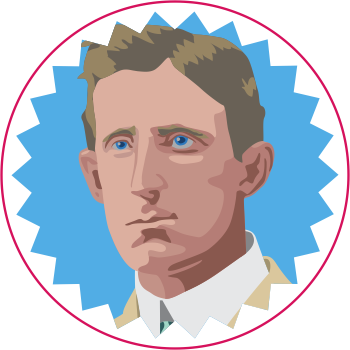 |
# Games Played |
1250 |
 |
| % Games Won |
41% |
 |
| Excels in Chaos |
45 |
 |
| Avoids Time Trouble |
15 |
 |
| Combativeness |
19 |
 |
| Skill Rating |
2706 |
 |
|
Marshall began playing chess at the age of 10 and by 1890 was one of the leading players in Montreal. He won the U.S. chess championship in 1904, but did not accept the title because the current U.S. champion, Harry Nelson Pillsbury, did not compete. In 1906, Pillsbury died and Marshall again refused the championship title until he won it in competition in 1909. In 1936, after holding the U.S. championship title for 27 years, he relinquished it to the winner of a championship tournament. The first winner was Samuel Reshevsky.
View Games Profile
|
|
Milan Vidmar
1885 - 1962
|
|
Stats: +199 -108 =234
|
|
 |
# Games Played |
541 |
 |
| % Games Won |
37% |
 |
| Excels in Chaos |
38 |
 |
| Avoids Time Trouble |
11 |
 |
| Combativeness |
12 |
 |
| Skill Rating |
2699 |
 |
|
Vidmar was probably one of the best half dozen Chess players in the world from 1911 to 1929, all the while remaining an amateur. His successes include high places at some of the top chess tournaments of his time. 1st at Gothenburg 1909, 2nd at San Sebastián 1911 behind José Capablanca, 1st at Budapest 1912, 2nd at Mannheim 1914, 1st at Vienna & Berlin 1918, 3rd at London 1922, 2nd at Košice 1928, and 1st= with Alekhine at Hastings 1925/26.
View Games Profile
|
|
Oldrich Duras
1882 - 1957
|
|
Stats: +203 -95 =95
|
|
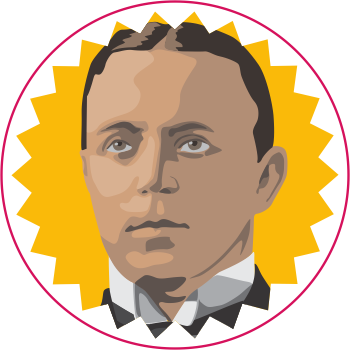 |
# Games Played |
393 |
 |
| % Games Won |
52% |
 |
| Excels in Chaos |
41 |
 |
| Avoids Time Trouble |
11 |
 |
| Combativeness |
25 |
 |
| Skill Rating |
2696 |
 |
|
Duras was one of the world's premier tournament players from 1905 until the start of the First World War. His successes include joint first prizes at Vienna 1908 (shared with Carl Schlechter and Geza Maroczy), Prague 1908 (shared with Schlechter again) and Breslau 1912 (shared with Akiba Rubinstein). Duras was a three time Czech Champion (1905, 1909 and 1911) and he also tied for first in the German Championship of 1912.
View Games Profile
|
|
Adolf Anderssen
1818 - 1879
|
|
Stats: +412 -320 =61
|
|
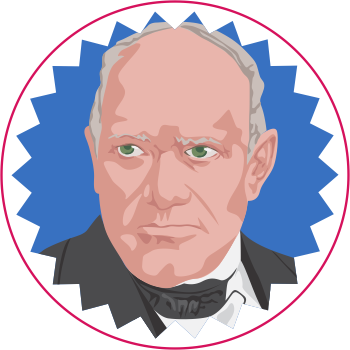 |
# Games Played |
793 |
 |
| % Games Won |
52% |
 |
| Excels in Chaos |
45 |
 |
| Avoids Time Trouble |
16 |
 |
| Combativeness |
37 |
 |
| Skill Rating |
2689 |
 |
|
Anderssen is considered to have been the world's leading chess player in the 1850s and 1860s. He was "dethroned" temporarily in 1858 by Paul Morphy. After his defeat by Steinitz in 1866, Anderssen became the most successful tournament player in Europe, winning over half the events he entered. Remarkably, Anderssen achieved most of these successes when he was over the age of 50!
View Games Profile
|
|
Isaac Kashdan
1905 - 1985
|
|
Stats: +257 -95 =133
|
|
 |
# Games Played |
485 |
 |
| % Games Won |
53% |
 |
| Excels in Chaos |
39 |
 |
| Avoids Time Trouble |
12 |
 |
| Combativeness |
23 |
 |
| Skill Rating |
2685 |
 |
|
Kashdan was one of the world's best players in the late 1920s and early 1930s. He was twice U.S. Open champion (1938, 1947). He played five times for the United States in
chess Olympiads, winning a total of nine medals, and his Olympiad record is the all-time best among American players.
Kashdan, who was Jewish, was often called 'der Kleine Capablanca' (The little Capablanca) in Europe because of his ability to extract victories from seemingly even positions. Alexander Alekhine named him one of the most likely players to succeed him as World Champion.
View Games Profile
|
|
Saviely Tartakower
1887 - 1956
|
|
Stats: +513 -252 =531
|
|
 |
# Games Played |
1296 |
 |
| % Games Won |
40% |
 |
| Excels in Chaos |
41 |
 |
| Avoids Time Trouble |
7 |
 |
| Combativeness |
13 |
 |
| Skill Rating |
2681 |
 |
|
Tartakower is regarded as one of the founders of the Hypermodern School of Chess, alongside Richard Reti, Aron Nimzowitsch, and the lesser-known Gyula Breyer. He wrote several books, including "The Hypermodern Game of Chess", and “Modern Chess Strategy".
Golembek said "Dr. Tartakower is far and away the most cultured and the wittiest of all the chess masters I have ever met. His extremely well stored mind and ever-flowing native wit make conversation with him a perpetual delight”
View Games Profile
|
|
Louis Paulsen
1833 -1891
|
|
Stats: +219 -113 =88
|
|
 |
# Games Played |
420 |
 |
| % Games Won |
52% |
 |
| Excels in Chaos |
32 |
 |
| Avoids Time Trouble |
2 |
 |
| Combativeness |
27 |
 |
| Skill Rating |
2662 |
 |
|
Paulsen was one of the first players to put forward the idea that any brilliant attack would have failed against correct defence. His ideas were grasped by Aron Nimzowitsch, who
listed Paulsen among his six greatest "purely defensive players". Paulsen was capable of playing 10 blindfold games at the same time without any major errors.
In 1862 Paulsen challenged Adolf Anderssen for the world championship. The eight-game match was a tie and Anderssen remained an unofficial world champion.
View Games Profile
|
|
Richard Réti
1889 - 1929
|
|
Stats: +241 -160 =157
|
|
 |
# Games Played |
558 |
 |
| % Games Won |
43% |
 |
| Excels in Chaos |
41 |
 |
| Avoids Time Trouble |
15 |
 |
| Combativeness |
22 |
 |
| Skill Rating |
2656 |
 |
|
Réti worked to found hyper-modernism, along with Aron Nimzowitsch and Savielly Tartakower. The Réti Opening (1.Nf3 d5 2.c4) has become a staple of grandmaster play. With this opening system, Réti famously defeated Jose Raul Capablanca in New York in 1924, the Cuban's first loss in eight years and first as world champion.
Réti also composed numerous endgame studies, the most famous of which was a 1921 study that illustrated a beautiful method of drawing what may seem to be a hopeless king and pawn ending.
View Games Profile
|
|
Louis-Charles Mahé de La Bourdonnais
1795 - 1840
|
|
Stats: +59 -31 =15
|
|
 |
# Games Played |
105 |
 |
| % Games Won |
56% |
 |
| Excels in Chaos |
27 |
 |
| Avoids Time Trouble |
17 |
 |
| Combativeness |
32 |
 |
| Skill Rating |
2653
|
 |
|
De la Bourdonnais, once wealthy was forced to earn his living as a professional chess player after squandering his fortune on ill-advised land deals. A pupil of the incredibly strong Frenchman Deschapelles, de la Bourdonnais eventually became so skilled that he dominated all other players in France.
View Games Profile
|
|
Howard Staunton
1810 - 1874
|
|
Stats: +187 -80 =39
|
|
 |
# Games Played |
306 |
 |
| % Games Won |
61% |
 |
| Excels in Chaos |
31 |
 |
| Avoids Time Trouble |
6 |
 |
| Combativeness |
33 |
 |
| Skill Rating |
2652 |
 |
|
On his 2nd attempt Staunton beat visiting Frenchman Pierre de Saint Amant convincingly breaking the 100-year domination of Chess by French players. In the 1840s and 50s Staunton did a great deal for chess. He founded and edited "The Chess Player's Chronicle", organized the first International tournament (London 1851) and made efforts to unify the laws of chess.
View Games Profile
|
|
Alexandre Deschapelles
1780 - 1847
|
|
Stats: Unknown
|
|
 |
# Games Played |
N/A |
 |
| % Games Won |
N/A |
 |
| Excels in Chaos |
25 |
 |
| Avoids Time Trouble |
14 |
 |
| Combativeness |
28 |
 |
| Skill Rating |
2587 |
 |
|
Alexandre Deschapelles, was probably the strongest player in the world of his time. He was considered the unofficial world champion from about 1800-1820. A soldier in Napoleon's army, Deschapelles lost his right hand in the Battle of Fleurus and had a massive sabre-wound down the entire length of his face.
View Games Profile
|
|
Henry Bird
1830 - 1908
|
|
Stats: +169 -228 =70
|
|
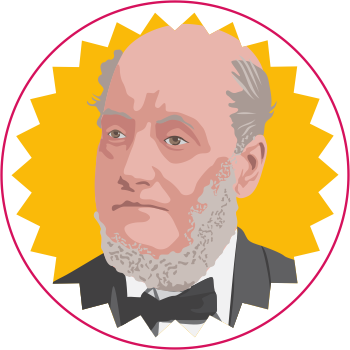 |
# Games Played |
467 |
 |
| % Games Won |
36% |
 |
| Excels in Chaos |
36 |
 |
| Avoids Time Trouble |
12 |
 |
| Combativeness |
32 |
 |
| Skill Rating |
2582 |
 |
|
Henry Bird was an English chess player, and also an outstanding author and accountant. He wrote a book titled Chess History and Reminiscences, and another titled An Analysis of Railways in the United Kingdom.
In 1874 Bird proposed a new chess variant, which played on an 8×10 board and contained two new pieces: Guard (combining the moves of the rook and knight) and Equerry (combining the bishop and knight). Bird's chess inspired Capablanca to create another chess variant, Capablanca chess, which differs from Bird's chess only by the starting position.
View Games Profile
|
|
François-André Philidor
1726 - 1795
|
|
Stats: +17 -3 =4
|
|
 |
# Games Played |
24 |
 |
| % Games Won |
71% |
 |
| Excels in Chaos |
19 |
 |
| Avoids Time Trouble |
15 |
 |
| Combativeness |
30 |
 |
| Skill Rating |
2559 |
 |
|
Philidor was both a great Chess player and musical prodigy - his first musical composition was played before King Louis XV when he was only 11 years of age. Philidor was taught chess by Kermur Sire De Legal, who initially gave him rook odds, until the young Philidor became too strong. In 1744 Philidor played two chess games blindfold in public in Paris, a feat never before accomplished.
View Games Profile
|
|
Alexander McDonnell
1798 - 1834
|
|
Stats: +41 -52 =14
|
|
 |
# Games Played |
107 |
 |
| % Games Won |
38% |
 |
| Excels in Chaos |
31 |
 |
| Avoids Time Trouble |
1 |
 |
| Combativeness |
33 |
 |
| Skill Rating |
2545 |
 |
|
In 1825 McDonnell became a pupil of William Lewis, who was then the leading player in Britain. But soon McDonnell had become so good that Lewis,fearing for his reputation, simply refused to play him anymore. Between June and October 1834 La Bourdonnais and McDonnell played a series of six matches, a total of eighty-five games, at the Westminster Chess Club in London. McDonnell won the second match and is thus thought to have briefly been World Champion.
View Games Profile
|
|
Phillip Stamma
1705 - 1755
|
|
Stats: Unknown
|
|
 |
# Games Played |
N/A |
 |
| % Games Won |
N/A |
 |
| Excels in Chaos |
17 |
 |
| Avoids Time Trouble |
11 |
 |
| Combativeness |
34 |
 |
| Skill Rating |
2520 |
 |
|
Stamma was a regular at Slaughter's Coffee House in St. Martin's Lane (London), a center of 18th century English chess, and was considered one of England's strongest players. He was defeated quite handily by Philidor in a famous match in 1747, which marked the beginning of Philidor's rise to fame. Apart from the higher skills of Philidor, this defeat could also be justified by the fact that Stamma was used to playing with the Arabic rules and only after his arrival to Europe got acquainted with Western rules.
View Games Profile
|
|
Gioachino Greco
1600 - 1634
|
|
Stats: Unknown
|
|
 |
# Games Played |
N/A |
 |
| % Games Won |
N/A |
 |
| Excels in Chaos |
30 |
 |
| Avoids Time Trouble |
10 |
 |
| Combativeness |
33 |
 |
| Skill Rating |
2512 |
 |
|
Greco was an Italian Chess player and writer. In 1619, Greco started keeping a notebook of tactics and games, and he took up the custom of giving copies of his manuscripts to his wealthy patrons. In 1621 Greco travelled to test himself against the rest of Europe, visiting Paris and later, London. He spent the last years of his life at King Philipp IV's court and died in the West Indies.
View Games Profile
|
|
Vera Menchik
1906 - 1944
|
|
Stats: +78 -129 =70
|
|
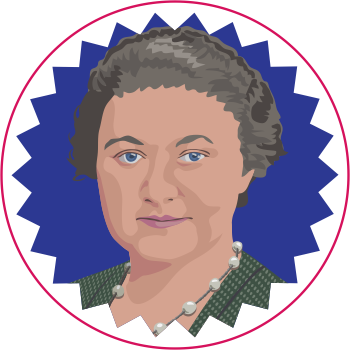 |
# Games Played |
277 |
 |
| % Games Won |
28% |
 |
| Excels in Chaos |
32 |
 |
| Avoids Time Trouble |
16 |
 |
| Combativeness |
24 |
 |
| Skill Rating |
2484 |
 |
|
Vera Menchik was a British-Czech chess player who gained renown as the world's first women's chess champion. She also competed in chess tournaments with some of the world's leading male chess masters, defeating many of them, including future World Champion Max Euwe.
She learned the game at nine and, after her family settled in England in 1921, she began taking lessons from Géza Maróczy.
View Games Profile
|
|
Ruy López de Segura
1530 - 1580
|
|
Stats: Unknown
|
|
 |
# Games Played |
N/A |
 |
| % Games Won |
N/A |
 |
| Excels in Chaos |
14 |
 |
| Avoids Time Trouble |
5 |
 |
| Combativeness |
31 |
 |
| Skill Rating |
2436 |
 |
|
Ruy López was a Spanish priest and later promoted to a Bishop. Lopez journeyed to Italy seeking a Chess book as a Christmas gift for his friend and patron, Phillip II, the King of Spain. López decided the best chess books of that day were not good enough for his King. So he wrote his own book, published in 1561. After Lopez returned to Madrid Phillip II hosted a tournament in 1575 where Lopez claimed the first unofficial world title of Chess.
View Games Profile
|
|